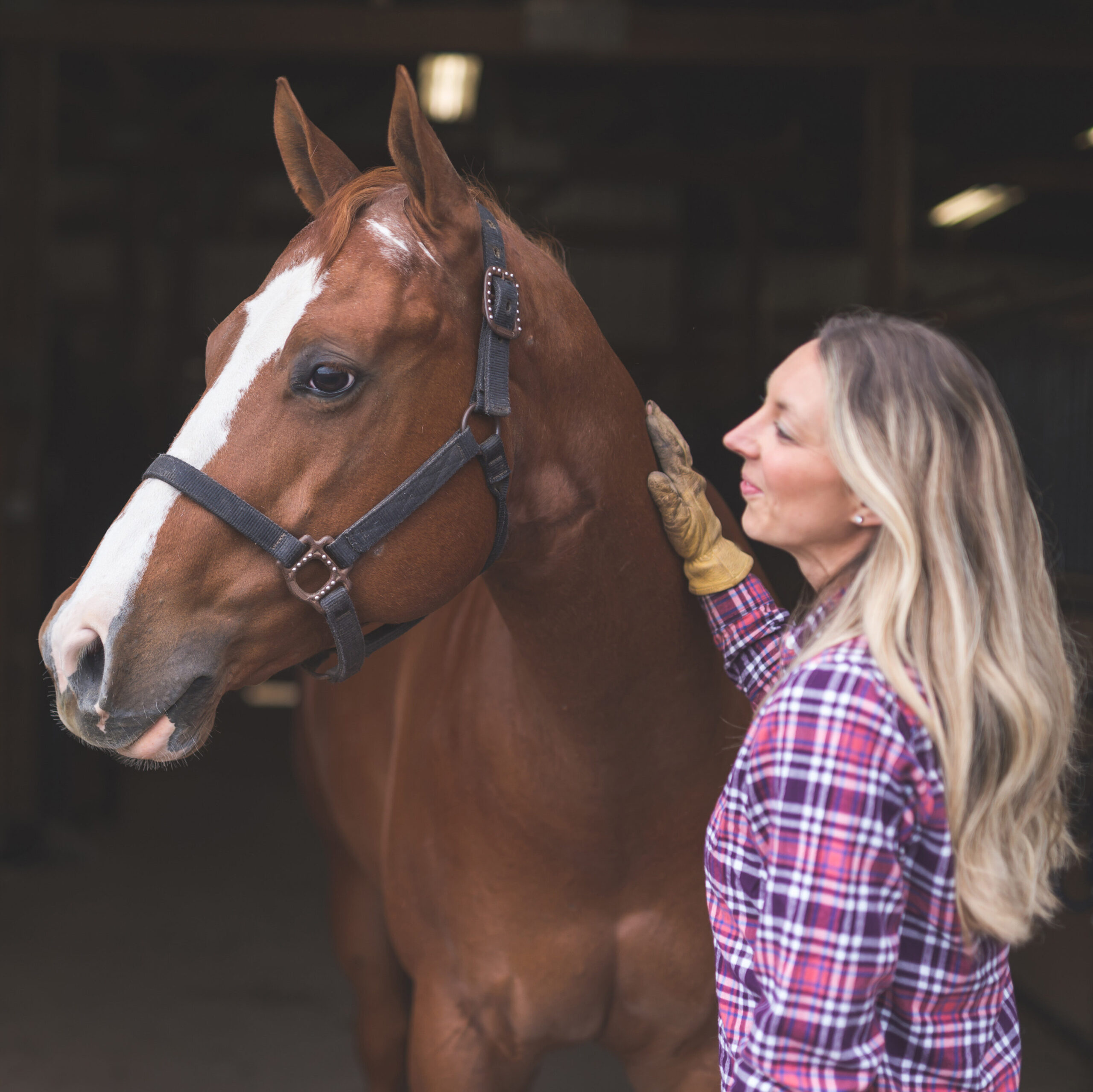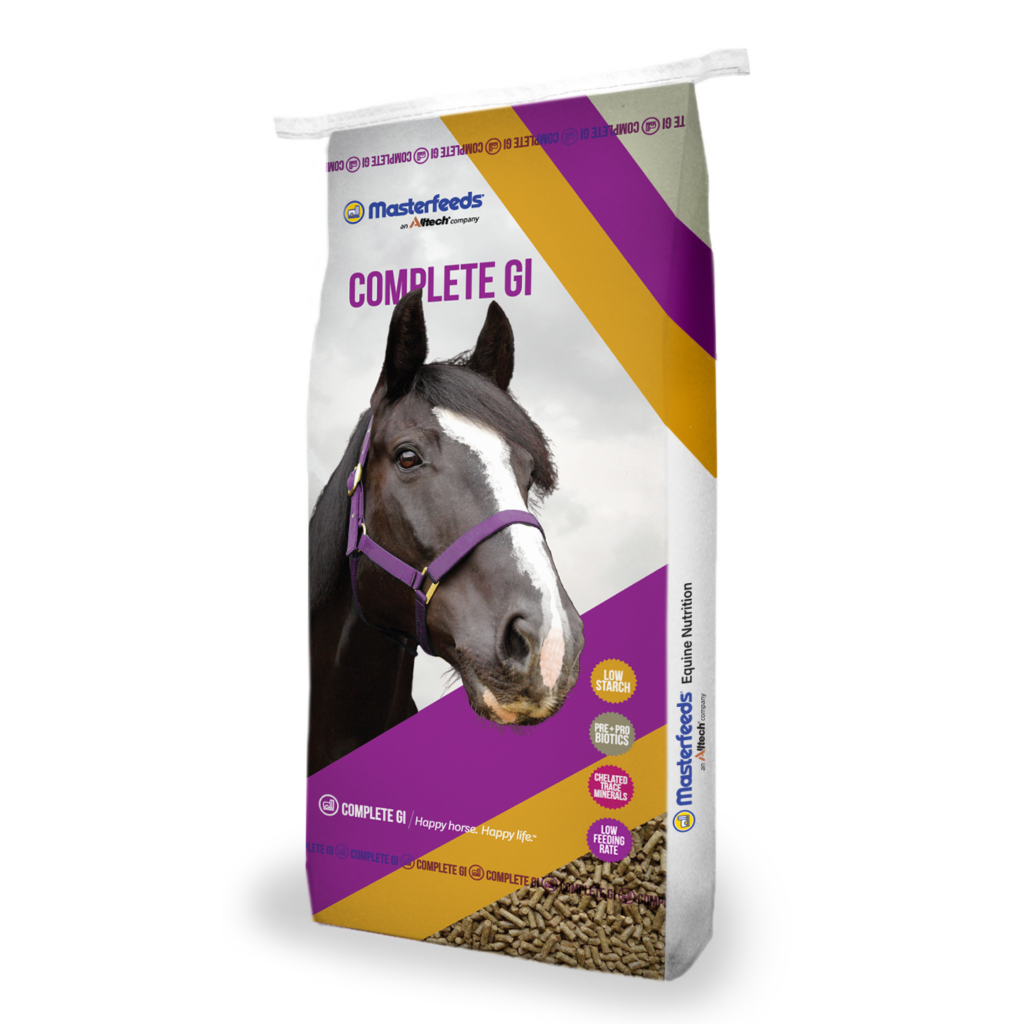Formulating feeds that adapt to the needs of modern day equines is something we’ve been doing for over 95 years. While whole grains and textured feeds reigned supreme in the past, vast improvements in equine health and nutrition have led us to improve formulas decade after decade, year after year to provide the best complete nutrition for all life stages and needs.
What we are seeing now, is an increase of horses that require specialized diets – whether that increase is caused by life style changes or a better understanding of various equine conditions or both. Read on to see how we’ve adapted our newest formula to the special needs horse, and why.
LAID-BACK LIFESTYLES.
Today’s horses live a very different life than those that came before them – more and more are living longer, enjoying lusher pastures and forages, while also living a more sedentary life than their ancestors. Out of the approximately 500,000 horses in Canada, it is estimated that the vast majority engage in recreation, light work or amateur sport roles. These levels of activity are less strenuous than working jobs of the past (road or field work) and much less so than the smaller group of horses engaged in high intensity professional sport or racing today as categorized by the NRC. Not only are horses generally living more maintenance lives, owners are quite frequently over estimating their energy output. The long story short is that a vast majority of today’s horses are receiving higher calorie forage, with less calorie output than those of the past.

While owners over estimate how hard their horses may be working, we also have been shown to have a tendency to under estimate the body condition of our horses, particularly those that are overweight or even obese.
Around the globe where horses are primarily companions, obesity has emerged as a frequent and serious health and welfare problem, putting our horse friends at risk for equine metabolic syndrome, laminitis, and insulin resistance – all of which require specialized nutrition care.
Beyond nutrition, obesity can affect joints, reproduction and the ability to thermoregulate properly in fluctuating temperatures.
INCREASING HEALTH KNOWLEDGE.

Each year, the equine industry now knows a bit more about horse genetics, health and nutrition and how we can better support the management of horses with special needs. Years ago, we learned that calories in the form of fat and fibre rather than nonstructural carbohydrates may suit the equine digestive system better, which led us to focus in on high fat, high fibre formulas. For decades researchers have been identifying health issues that require controlled metabolic responses for maintenance, which has led us to controlled sugar rations.
There are various conditions identified that are caused by genetics, environment, diets, or a mix of variables yet to be determined. While we learn more about their causes and pathology, what we can do to not further exacerbate these conditions is look to diet and management together and how we can optimize those to keep special needs horses in a neutral state of health. For example, here are a few conditions or types of horses that benefit from a controlled non structural carbohydrate diet (including forage!) and consistent exercise:
- Pituitary pars intermedia dysfunction (PPID or Cushing’s): an endocrine disorder of aged horses, typically 15+.
- Polysaccharide storage myopathy (PSSM1): abnormal accumulation of sugar in the muscles.
- Insulin resistance/insulin dysregulation: abnormal responses to the hormone insulin, which regulates sugar metabolism.
- Overweight horses at risk for metabolic syndrome.
- Horses at risk of laminitis.
- Horses with a history of tying up, colic, ulcers, or general digestive upset.
Combining lifestyle changes with diet changes and available medications means that special needs horses can continue to live long, fulfilling lives in spite of their conditions.
OUR NEW SPECIAL NEEDS FEED.

The increase in special needs horses, and their decrease in caloric needs is why we’ve now introduced our new feed, Complete GI. Targeted to the special needs of horses facing metabolic challenges, Complete GI has an ultra low level of nonstructural carbohydrates, chelated trace minerals, gut support additives and digestible fibre to promote overall internal health.
With a low feed rate, this formula is made to safely feed a balanced ration for horses with genetic and age related sugar sensitive conditions, as well as those who are predisposed to laminitis or are otherwise metabolically challenged. The ultra low NSC is intended to regulate insulin responses while the low calories help to control body condition on horses with Equine Metabolic Syndrome or a predisposition to obesity.
Masterfeeds prides itself on staying informed about what research is saying and what the equine population trends are and responding with quality formulations for all horses and life stages. Complete GI is our latest formula to help manage horses with special needs, keeping them happy well into their golden years.
For more information on Complete GI, or to schedule an on-farm consultation from one of our reps, visit our website, contact us, or email us directly at: happyhorses@masterfeeds.com
Product Spotlight

COMPLETE GI (PELLET) EAST | WEST
FOR EQUINES WITH SUGAR SENSITIVIES OR METABOLIC DISORDERS
Masterfeeds Complete GI is an ultra-low NSC feed specially designed for horses and ponies with metabolic challenges. Formulated with pre and probiotics, and a comprehensive organic mineral package, it promotes healthy hindgut fermentation through digestible fibre. With its low feeding rate and reduced calorie content, Complete GI provides an efficient and balanced solution to meet the unique nutritional needs of special needs equines.
Related Posts
- Two Ends of the Spectrum: Feeding the Under or Over Weight Horse
- Preventing and Treating Colic
- Gastric Ulcers and Tying Up
- Guide to Deworming Your Horse
- Tips to Minimize Parasites on the Farm
- Hay Shortages and Quality Issues: Finding Fibre Alternatives and Balancing Rations
- Considering Calories: Weight Loss Causes and Solutions
- Nutrition Solutions: Feeding for Optimal Body Condition
